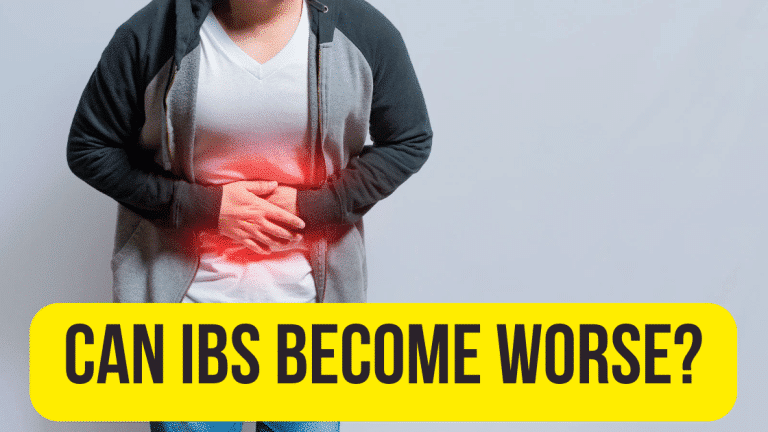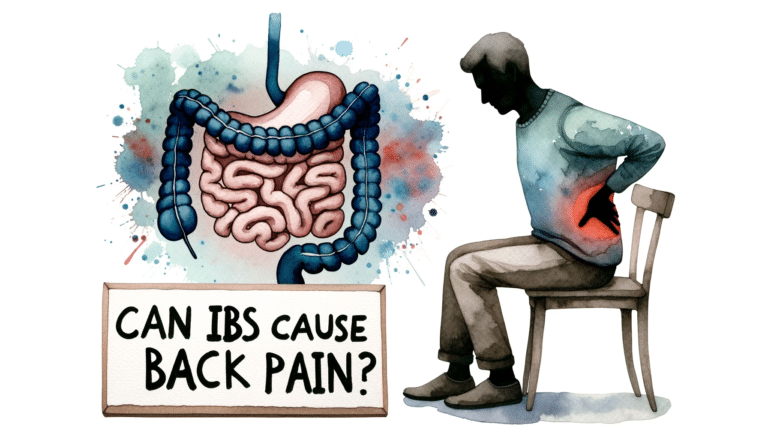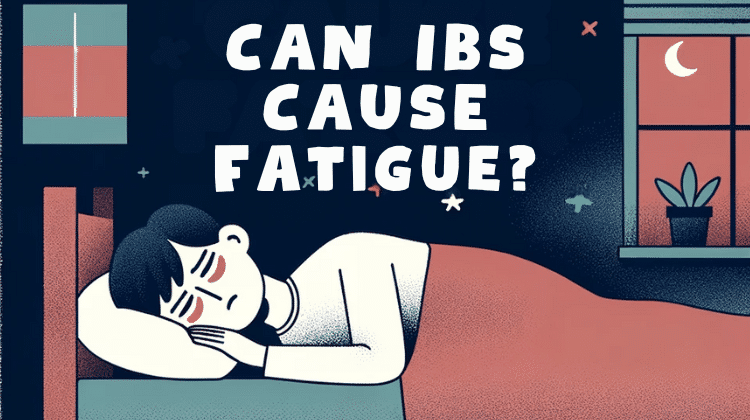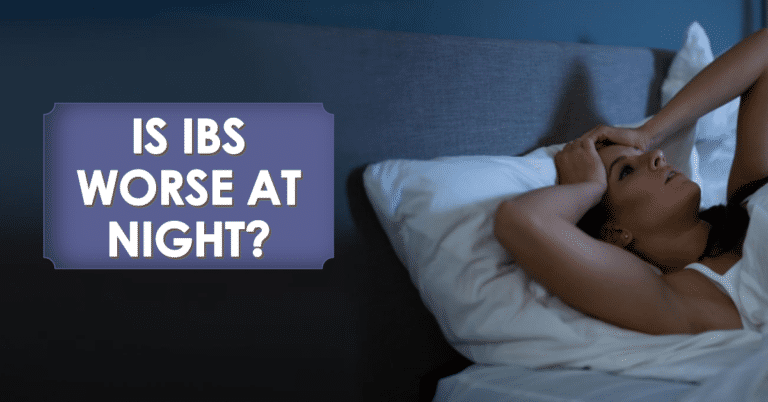IBS Cramps Got You Down? – How to Take Back Control
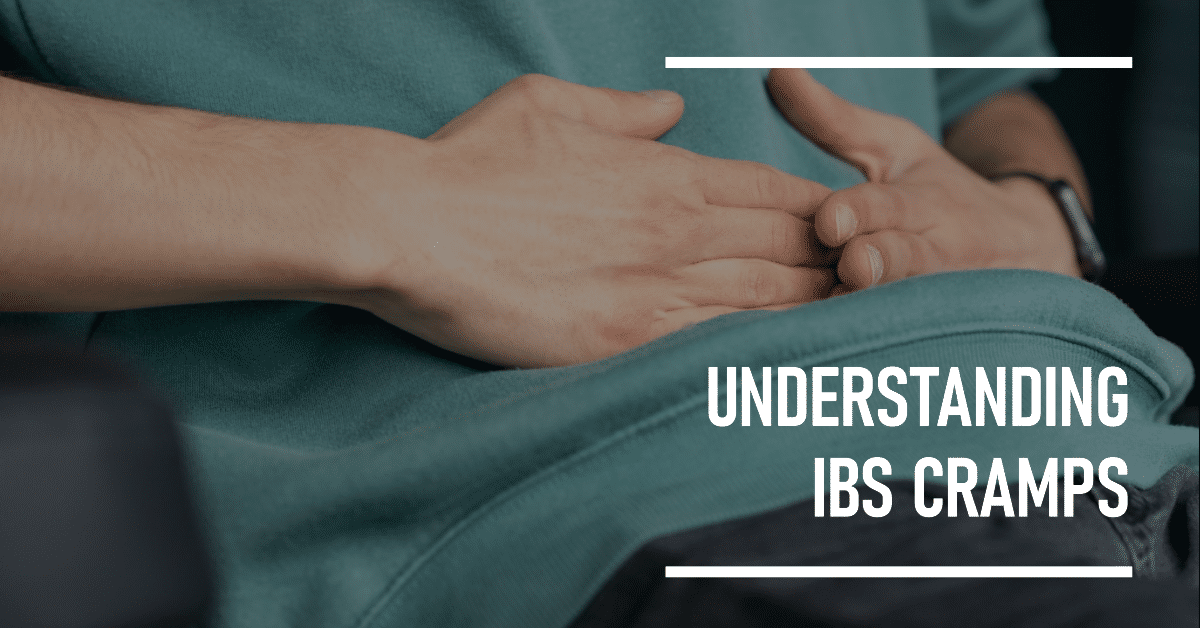
Struggling with persistent IBS cramps can turn daily life into an uphill battle. The silver lining? You can significantly minimize this discomfort.
- Step 1: Identify your triggers
- Step 2: Modify your diet
- Step 3: Manage your stress levels
Diving deeper into these steps can provide you with the tools to control your IBS cramps effectively.
Intrigued to know more? Keep reading.
🚨 4 Must-Know Facts About IBS Cramps
- IBS cramping stems from issues with the nerves, muscles, and bacteria in your gut.
- IBS cramping comes and goes, often worsening after meals or during stress.
- While frustrating, IBS cramps are not dangerous or life-threatening.
- You can find real relief through medications, diet, lifestyle changes, and stress management tools like gut-led hypnotherapy with Nerva IBS.
Why Me? Understanding What Causes IBS Cramping
If you’re struggling with repeated bouts of IBS cramps, you’re not alone. IBS affects up to 15% of people in the US, and abdominal cramping is the hallmark symptom.
But what causes this frustrating cycle of cramps and discomfort?
The exact causes are still being studied, but experts believe IBS cramps stem from problems with:
Stressed Out Gut Nerves
- For people with IBS, the nerves in the digestive system become hypersensitive.
- Pain signals from even normal bowel contractions get amplified, causing cramping.
Out of Whack Muscles
- The intestinal wall has layers of muscle that contract to push food through.
- In IBS, these muscle contractions become abnormal, leading to spasms.
Bacterial Imbalance
- A severe infection can throw off the balance of gut bacteria.
- This bacterial imbalance disrupts digestion, causing gas, bloating, and cramps.
While the origins of IBS remain somewhat complex, the important thing to know is IBS cramps are real and you can get relief through targeted lifestyle changes and treatment.
Tracking Your Triggers: Why Do IBS Cramps Flare Up Sometimes?
IBS cramps can strike out of the blue or seem related to certain triggers. Common culprits include:
🍽️ Mealtime – Cramping often ramps up after eating. Fatty or gas-producing foods make it worse.
😣 Stress – When you’re anxious or tense, so is your digestive system. Stress exacerbates IBS symptoms.
🩸 Menstrual cycles – Hormone shifts during your period can increase cramping.
🦠 Illness – A stomach bug that throws off your gut bacteria can lead to persisting IBS.
While flare ups can feel random, keeping a symptom journal helps identify your unique IBS cramp triggers.
Diagnosis: Ruling Out Other Causes of Cramping
Since IBS cramps mimic other conditions like food sensitivities, doctors must run tests to rule out other possible causes:
🔬 Lab tests – Check for infections, celiac disease, inflammatory bowel disease.
🧪 Endoscopy – Examines your upper digestive tract to check for issues.
Once these tests come back normal, your doctor can confirm IBS based on the pattern of abdominal cramping and bowel habit changes.
Getting an accurate IBS diagnosis is important, as it means your cramps are not from a progressive, dangerous condition.
Take That, IBS: Lifestyle Changes and Treatments That Reduce Cramping
While no cure exists for IBS, you have many options to lessen cramping intensity and frequency. Work with your doctor to find the right mix of treatments:
👩⚕️ Medications – Antispasmodics, antidiarrheals, and low-dose antidepressants can help calm spasms and pain.
🥗 Diet – Limiting foods that make you gassy, or following a low FODMAP diet can significantly ease cramping.
🧘♀️ Stress relief – Relaxation techniques, counseling, exercise, and massage therapy help soothe your tense digestive nerves.
🌱 Probiotics & peppermint – These natural remedies help relieve bloating and abdominal tension.
👍 Lifestyle habits – Staying hydrated, sleeping enough, avoiding alcohol, and exercising regularly keeps symptoms in check.
Sticking with the treatment plan you and your doctor create offers the best chance of preventing recurrent IBS cramping ruining your plans.
Keeping IBS Cramps Under Control – Final Thoughts
Living with recurring IBS cramps can be disheartening, especially when a flare derails your day. But you have more power over IBS than you think.
🔑 Working with your doctor to accurately diagnose IBS is the first step. Once other conditions are ruled out, you can focus on targeted cramp relief treatments.
📝 Keeping a symptom journal helps you determine what lifestyle factors, foods, or stressors trigger your cramping episodes.
💪 With an arsenal of medications and home remedies, you can break the cycle of cramping and take back control. Don’t give up!
🤝 Leaning on support groups and opening up to loved ones can help you cope with the unpredictability of IBS while you work to tame symptoms.
IBS cramping does not have to run your life. Arm yourself with the right knowledge and tools, and you can minimize episodes, reduce pain and bloating, and start reclaiming your freedom.
FAQs About IBS Symptoms
What does it feel like to experience irritable bowel syndrome (IBS) symptoms?
IBS sufferers may experience a range of symptoms, including abdominal pain, bloating, changes in bowel movements such as constipation or diarrhea, and even a change in frequency and form of stool.
The symptoms often get worse after meals and may ease after a bowel movement.
Living with irritable bowel syndrome, the intensity of these symptoms may fluctuate day to day.
What leads to the development of Irritable Bowel Syndrome (IBS)?
The precise origins of IBS remain unknown. It’s speculated that a mix of factors such as heredity, intestinal bacteria, and stress may play a part.
Even though certain foods and lifestyle habits may provoke IBS, it’s important to note that while IBS can be chronic and potentially incapacitating, it isn’t fatal.
What strategies can be employed to alleviate IBS symptoms?
Each person is unique, so the methods that provide relief from IBS will vary.
Changes in diet and lifestyle can aid in symptom management. Medications and therapy could also be advantageous.
To devise a personalized IBS treatment strategy, it’s recommended to consult with a healthcare professional.
What are the usual triggers for IBS?
Various triggers can intensify IBS symptoms.
For many individuals, specific foods, stress, hormonal shifts, or other diseases can provoke symptom flare-ups. Recognizing your personal triggers is crucial for effectively controlling IBS.
Is it possible for any healthcare professional to diagnose IBS?
While any healthcare professional may diagnose IBS based on your symptoms, for a comprehensive understanding of IBS, it might be beneficial to consult with a gastroenterologist.
They specialize in conditions affecting the gastrointestinal (GI) tract.
What are some widely-used treatments for IBS?
IBS treatments typically focus on managing the symptoms. This could involve changes in diet, incorporating stress management methods, and taking prescribed medications.
Based on your individual symptoms and triggers, your healthcare provider might suggest specific treatments.
How can I manage IBS pain and the other symptoms?
First, understanding IBS and identifying your specific triggers is key in managing IBS pain and other symptoms.
Diet and lifestyle changes along with medications as prescribed by your healthcare provider can significantly help reduce symptoms.
Sometimes, a multidisciplinary approach involving a dietitian, psychologist, and GI specialist will provide the best relief.
Can a change in diet help with IBS symptoms?
Yes, certain foods can trigger IBS symptoms. Learning about food ingredients and keeping a food diary may help identify these triggers.
Often, a diet low in FODMAPs (certain types of carbohydrates) may reduce symptoms in most patients with IBS with constipation or IBS with diarrhea.
What can I do to learn more about managing IBS?
Consult your healthcare provider about your symptoms. They could direct you to a gastroenterologist.
Participating in support groups for shared experiences and advice is also a way to better manage your symptoms.
And for further insights, make sure to explore more articles right here at thekeytoglutenfree.com.
Disclaimer: This content is based on my personal experience as an individual diagnosed with celiac disease and IBS (Irritable Bowel Syndrome) who follows a strict gluten-free diet. This does not constitute medical advice. Please consult a medical professional, nutritionist, or qualified dietitian for personalized, professional advice.



